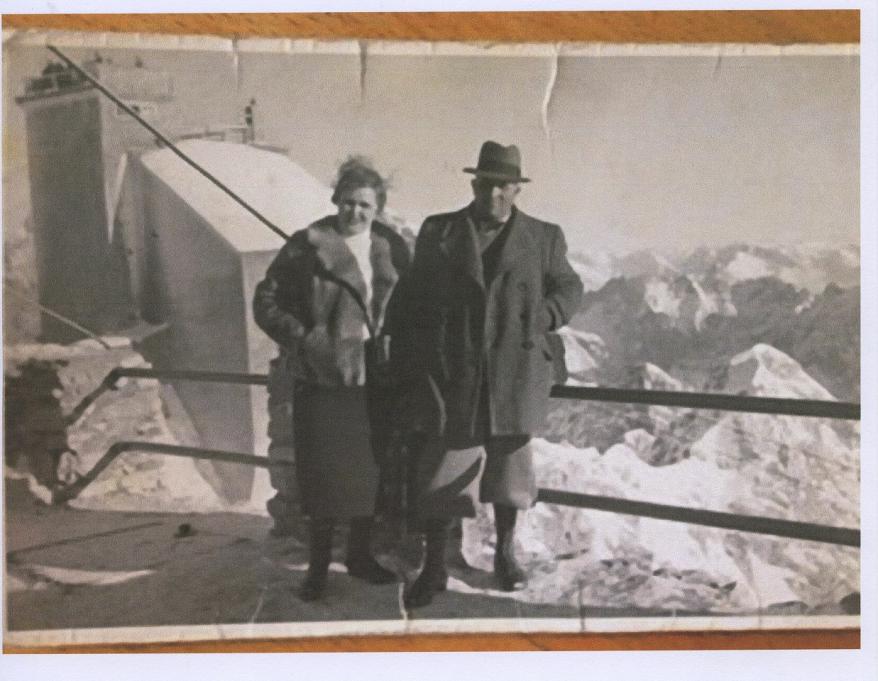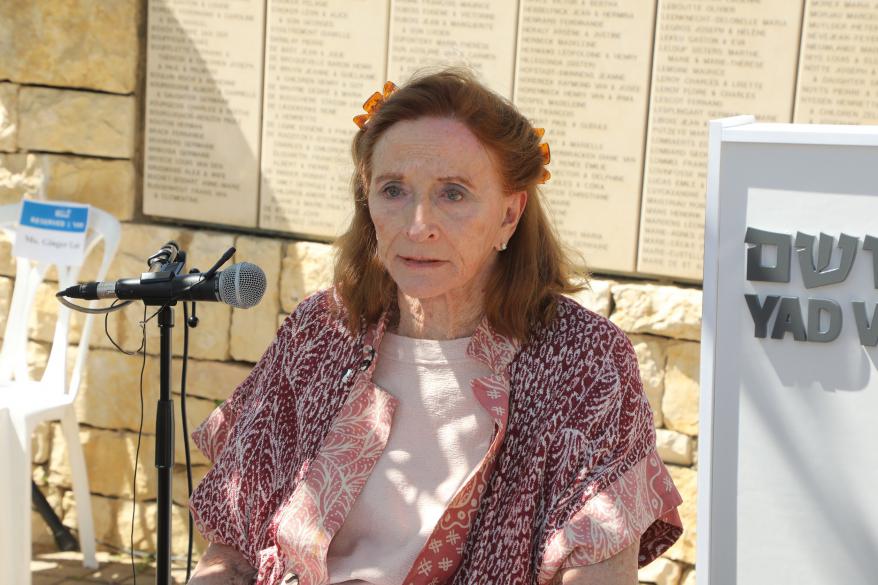Profile courtesy of Yad Vashem

“Be humane, have respect for others and help if you can.” This is the legacy that Arthur Schmidt learned from his grandfather, Arthur Schmidt (Sr.), who, together with his wife Paula, courageously risked his life to save Jewish children during the Holocaust.
This month, the Schmidt family journeyed from Germany to Israel in order to attend the moving recognition ceremony at Yad Vashem posthumously honoring the late Arthur and Paula Schmidt as Righteous Among the Nations. Irena Steinfeldt, Director of the Department of the Righteous Among the Nations at Yad Vashem, presented Arthur (Jr.) with his grandparents’ certificate and medal in the presence of German Ambassador to Israel H.E. Dr. Clemens von Goetze and members of the Commission for the Designation of the Righteous Among the Nations.
“I am so grateful that Yad Vashem cared enough to let the world know that my grandparents risked their lives to save seven Jewish souls during the Holocaust,” said Arthur (Jr.). “This is very important for me and my family, and extremely moving for us.”
In 1925, Alexander Weber converted to Judaism. A year later, he married Lina Banda, a Jewish woman from Hungary. The couple moved to Berlin, where they raised their seven children. In their building at 48 Dragonerstrasse Street was a shop rented by a farmer named Arthur Schmidt. Schmidt used the shop to store the fruit and vegetables he brought to sale from his farm in Worin, Brandenburg.
In March 1943, the Weber family was arrested. Alexander and the children were released at the beginning of the summer, and when Alexander began to look for a safe place for his children, Arthur and Paula Schmidt offered to take the children to Worin and shelter them there. For almost two years, the Schmidt couple cared for the children, sharing their food with them. Only the mayor of Worin knew the children’s true identity.
Lina Weber was deported to Auschwitz in the spring of 1943, where she was murdered in December 1943. After the war, the Weber children immigrated to the United States, where they were later joined by their father.

One of the children saved by the Schmidt family, Ginger Lane (née Bela Weber), connected the past with the present by attending the ceremony at Yad Vashem. As a very young child during the war, Lane has very few memories of the period. Nevertheless, she vividly remembers feeling “hungry, cold and alone.”
She also recalls picking strawberries on the Schmidt farm and collecting wood to make fires. She also remembers playing in the field, and digging for potatoes. Her sister Ruth was responsible for washing the laundry. She recollects Arthur Schmidt as “a very kind man.”
Lane was thrilled to be reunited with her rescuers’ grandson, and paid tribute to the courageous actions of her rescuers. “We are more grateful than you could possibly know,” she told Arthur the grandson. “It is with a deep sense of humility and awe that I stand here as a representative of my family to honor a couple whose selfless commitment saved my family not once, but twice during the Holocaust.”
The second rescue occurred when the building in which the Weber children were hiding was hit by bombers, and they were trapped inside. Arthur dug them out and set them free.
Arthur and Paula Schmidt’s names were added to the Wall of Honor in the Garden of the Righteous Among the Nations. The Schmidts bring the number of German citizens to receive the honor to over 600 names.
